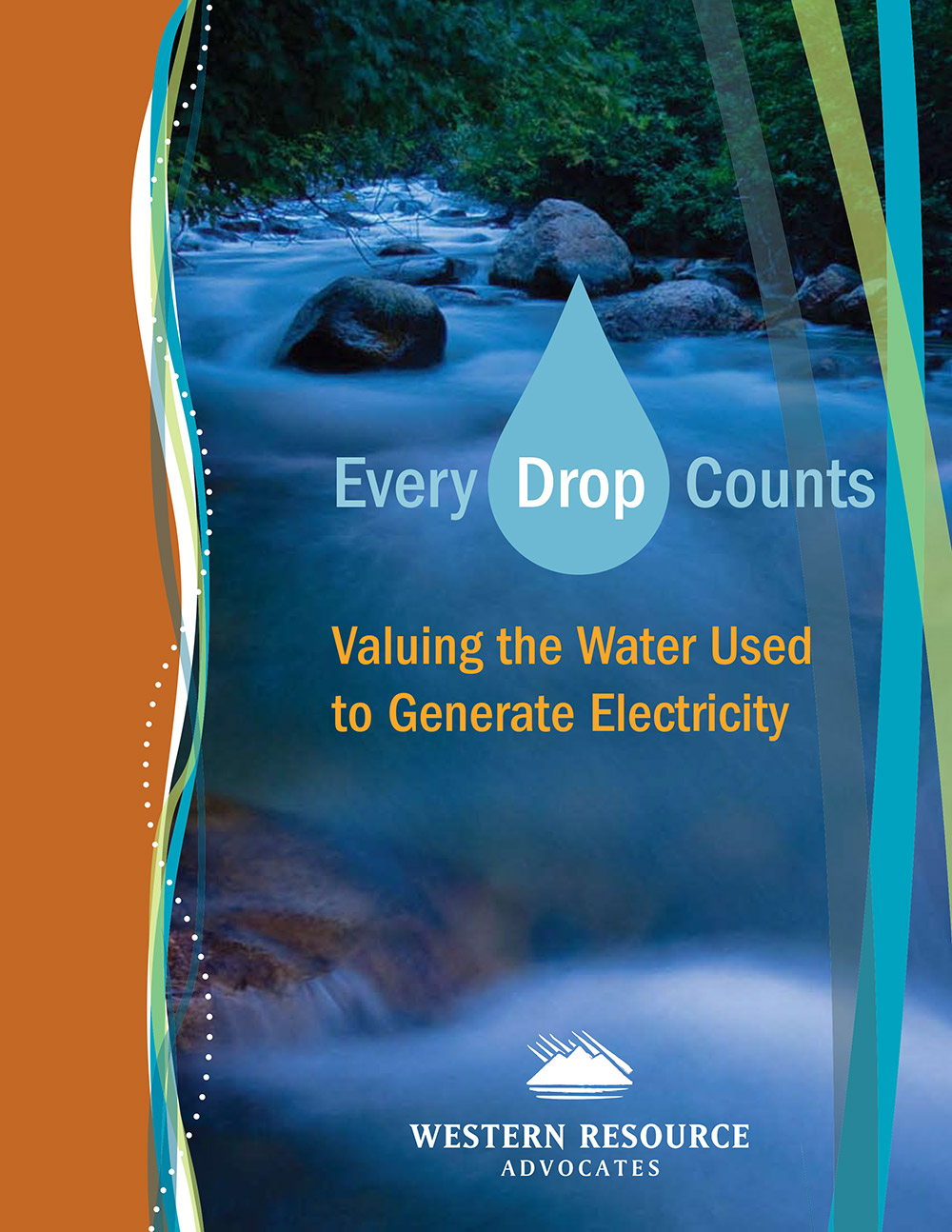
Every Drop Counts: Valuing the Water Used to Generate Electricity
Water has tremendous value—people, crops, industry, and the environment all rely on this limited resource, which is at considerable risk due to climate change. In 2005, power plants in six Western states consumed an estimated 395,000 acre-feet (AF) of water. These plants impact our region’s rivers and aquifers, and tie up water that could meet growing urban, agricultural, or environmental needs. Most electric utilities and regulators do not recognize or incorporate these needs when considering future resource plans. Most state public utility commissions already have the authority to consider water impacts, but, to date, many have not exercised this authority. This report provides detailed information on the growing urban, agricultural and environmental needs for water and provides recommendations for electric utilities and regulators to meaningfully address the water-energy nexus.
Report Recommendations
- Currently, the extent to which the region’s electric utilities and regulators consider water varies tremendously. At a minimum, utilities across the region should report water consumption for existing facilities, along with projected water consumption for different proposed portfolios, as part of their integrated resource plans.
- In considering new water-intensive power plants, utilities and regulators should assess both the value of water today and the potential value of water in the future. In areas where water is scarce today, or will likely be scarce in the next 40 to 50 years (or the lifetime of the proposed power plant), utilities and regulators should analyze the opportunity cost of using water for electricity generation. Utilities should prepare projections and sensitivity analyses, and incorporate those opportunity costs in their decisions.
- Finally, in many parts of the West, climate change is projected to reduce available water supplies and increase the likelihood and intensity of drought. In order to adapt to changing water availability, water users throughout the region will need to preserve or increase flexibility in management—committing water to a new power plant would remove some of this flexibility. Regulators and electric utilities should consider the benefits of maintaining flexibility, and the role of water-efficient forms of generation and energy efficiency as a hedge against short- or long-term drought.

